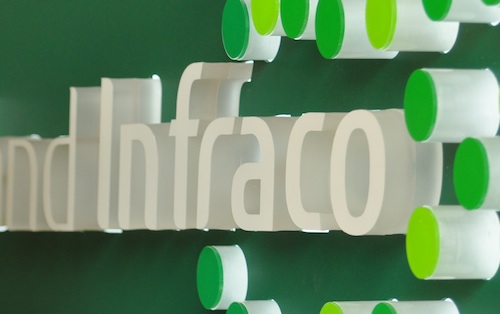
Troubled state-owned telecommunications wholesaler Broadband Infraco has promised to ramp up its spending from next year as it seeks to establish more network points of presence in towns and cities across the country.
Newly appointed chief technical officer Kiruben Pillay tells TechCentral the company is reviewing its build programme. From the new financial year, which begins on 1 April, it will accelerate investment in its network dramatically. In this financial year, Infraco is spending R270,6m on its network, much of which has come from contracts rolled over from last year.
Pillay says Infraco wants to invest between R400m and R700m a year on network infrastructure. It is also bringing a lot of outsourced services in-house, including its network operations centre, which was managed by Nokia Siemens Networks.
The company, which has been through a torrid time in the past 18 months, has put a turnaround strategy in place under acting CEO Andrew Shaw, who replaced founding CEO Dave Smith.
In the year to March 2011, it reported an operating loss of R207m and attracted a qualified audit, prompting public enterprises minister Malusi Gigaba to warn of government’s “grave concern” over the situation.
Infraco was the brainchild of Gigaba’s predecessor-but-one, Alec Erwin, who wanted to establish a national broadband operator to provide an alternative to Telkom’s national network in an effort to drive down prices.
Since its formation, however, the market has become much more competitive, with broadband prices declining substantially.
Pillay admits Infraco has faced a raft of problems, including “convoluted and dysfunctional” procurement processes, which he says the management team is working actively to fix. This includes a full review of the company’s network build programme. He expects capital expenditure to double, if not treble, in the next few years.
The company will focus its efforts on long-distance transmission, including national backhaul and submarine cable connectivity (it is an investor in the West African Cable System, which will be ready for commercial service in April).
Pillay says Infraco already has a 13 000km-long national fibre network in place and will now focus its attention on establishing “onramps and offramps” in the form of points of presence across the country where its customers can connect into its network. This will include points of presence in underserviced areas, which is required under its operating licence. It already has a presence in data centres operated by Teraco Data Environments.
Its customers are MTN, Business Connexion, Vodacom, Liquid Telecom and Seacom. Pillay says ultimately the company expects to have no more than 20-30 customers as it is prohibited from selling services directly to business and retail customers and has no intention of trying to do so.
The company has also promised to work more closely with private-sector infrastructure operators like Dark Fibre Africa to ensure there isn’t unnecessary duplication of network infrastructure, he adds. — Duncan McLeod, TechCentral
- Subscribe to our free daily newsletter
- Follow us on Twitter or on Google+ or on Facebook
- Visit our sister website, SportsCentral (still in beta)

